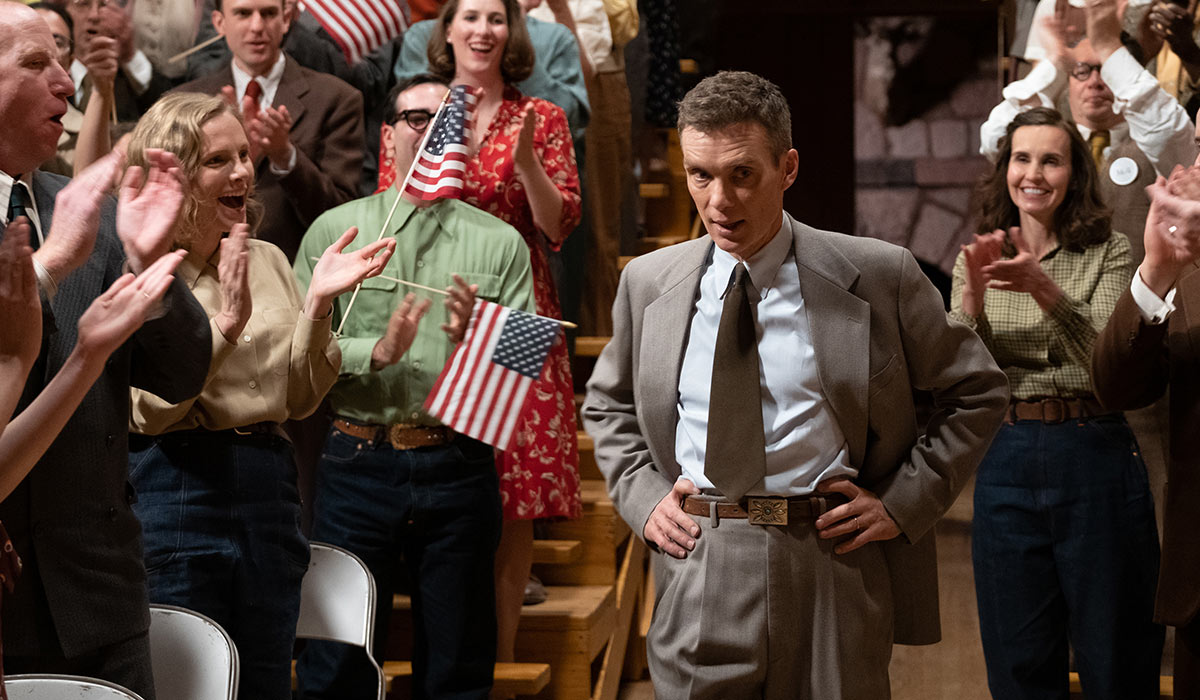
When you watch a movie or TV show, your focus is naturally drawn to the main characters and the unfolding storyline. But have you ever noticed the people in the background? The ones chatting at a café, walking through a park, or dancing at a party? These individuals, often unnoticed but crucial to the authenticity of a scene, are known as “extras.”
Stepping into the World of Entertainment
Becoming an extra offers a unique opportunity to experience the glitz and glamour of the entertainment industry without the pressure of a speaking role. It’s a chance to be part of a larger narrative, to witness the magic of filmmaking firsthand, and to potentially share screen space with some of Hollywood’s biggest stars. Whether you’re an aspiring actor looking for a foot in the door or someone seeking a unique experience, the role of an extra is both exciting and accessible.
In the vast universe of filmmaking, where stars shine bright and directors lead the way, there exists a group of individuals whose contributions, though subtle, are indispensable. These are the extras, the unsung heroes who breathe life into the background of our favorite scenes. In this article we are going to give you five easy steps on how to become an extra.
What is an Extra?
An extra is a person who appears in the background of a movie, TV show or commercial to provide a sense of realism, depth, and context. They do not have speaking roles but are essential in creating a believable environment. Whether it’s a bustling street, a crowded restaurant, or a concert audience, extras are the individuals you see filling up the space, making the scene come alive.
For instance, imagine a romantic scene in a café without any other customers or a football match without a cheering crowd. The absence of extras would make these scenarios feel incomplete and unrealistic.
Background Actor vs. Extra: Is There a Difference?
The terms “background actor” and “extra” are often used interchangeably, but there’s a subtle distinction. A background actor might have more specific actions in a scene, such as interacting with the main characters or being involved in a minor subplot. They might also be required to perform certain tasks or actions that contribute directly to the storyline.
On the other hand, extras generally blend into the background without any specific actions tied to the main plot. Their primary role is to be part of the setting, enhancing the overall ambiance and feel of a scene.
However, regardless of the terminology, both background actors and extras play a crucial role in making movies and TV shows more authentic and engaging.
2. Why Become a Movie Extra?
While the glitz and glamour of lead roles might seem enticing, there’s a world of opportunity and excitement that comes with being an extra. Here’s why you might consider taking the plunge into the background of the cinematic universe.
No Audition, No Stress
One of the most significant advantages of becoming an extra is the absence of auditions. Unlike main roles that require rigorous auditioning processes, most extras are chosen based on their look or the specific requirements of a scene. This means less stress and a higher chance of being selected, making it an excellent entry point for those new to the entertainment world.
Networking: Your Gateway to Bigger Opportunities
The film set is a melting pot of talent, from directors and producers to actors and crew members. Being an extra offers a unique opportunity to network with these industry professionals. Building relationships can open doors to bigger roles, acting lessons, or even behind-the-scenes jobs. Every day on set is a chance to make a lasting impression.
Rubbing Elbows with the Stars
Ever dreamt of sharing a set with Hollywood A-listers? As an extra, you get the chance to work alongside celebrities. While interactions might be brief, it’s an experience to cherish and a story to tell.
Earn While You Experience
While you’re soaking in the atmosphere of a film set and learning the ropes, you’re also getting paid. Extras can earn a decent daily wage, especially if the shoot is long or requires specific skills. And if you’re part of a union like SAG-AFTRA, there are set minimums for pay, ensuring you’re compensated fairly.
The Big Screen Awaits
There’s an indescribable thrill in seeing oneself on the big screen. Even if it’s a fleeting moment in the background, it’s a memory to cherish. Plus, it’s a great conversation starter at parties!
3. Getting Started: Registering with Casting Agencies
Before you can grace the sets of movies or TV shows as an extra, there’s a crucial step to undertake: registering with casting agencies. These agencies are the bridge between you and the filmmakers, ensuring you get the right opportunities that match your profile.
Why Choose Reputable Casting Agencies?
Selecting a reputable casting agency is paramount for several reasons:
- Authenticity: Established agencies have a track record of working with genuine filmmakers, ensuring you’re not caught in scams or unprofessional setups.
- Better Opportunities: Top agencies often get the first call for big-budget movies or popular TV shows, giving you a chance to be part of high-profile projects.
- Professional Guidance: Renowned agencies provide guidance, from understanding the requirements of specific roles to offering tips for success on set.
Central Casting: The Gold Standard
One of the most recognized names in the industry is Central Casting. With a legacy spanning several decades, they’ve been the go-to agency for many Hollywood productions.
- Diverse Opportunities: Central Casting handles a wide range of projects, from blockbuster movies to TV series and commercials.
- Comprehensive Database: Once registered, your profile is added to their extensive database, making it easier for casting directors to find and select you for suitable roles.
- Workshops and Training: They often organize workshops and training sessions, helping extras polish their skills and understand industry expectations.
The Registration Process: What to Expect
- Profile Creation: This involves providing your personal details, physical attributes, and any special skills or talents. High-quality photos, showcasing different looks, are often required.
- Documentation: Ensure you have all necessary identification documents. Some agencies might also require work permits or other legal documentation.
- Orientation: Many agencies, including Central Casting, conduct orientation sessions to familiarize new registrants with the workings of the industry.
- Availability Checks: Once registered, you might receive periodic calls or emails checking your availability for upcoming projects.
4. Preparing for Your Role as an Extra
While the role of an extra might not involve lines or specific character arcs, preparation is still crucial. Ensuring you’re well-prepared not only enhances the authenticity of the scene but also boosts your chances of being called back for future projects.
Getting Casting Notices
Before you step onto the set, you’ll receive a casting notice. This is usually sent through an inbox/message from the casting platform or an email from your casting agent. It will have all the necessary data about the audition.
- Date and Location: Know when and where you’re required.
- Scene Description: A brief overview of the scene you’ll be part of.
- Wardrobe Requirements: Specific instructions on what you should wear. This could range from “casual attire” to “1920s formal wear” depending on the scene.
It’s vital to read and understand these notices thoroughly. If there’s any confusion, reach out to the casting agency for clarification.
Hair and Makeup: Enhancing the Scene’s Authenticity
While lead actors have dedicated hair and makeup teams, extras are often required to come “camera-ready.” However, there might be occasions where you undergo hair and makeup sessions:
- Period Pieces: If the film is set in a different era, makeup artists ensure your look aligns with the time period.
- Specific Requirements: For scenes like weddings or parties, you might receive specific hair and makeup instructions.
Always come prepared, but be open to changes that the production team deems necessary for the scene.
Punctuality and Professionalism: The Hallmarks of a Successful Extra
Being on time is non-negotiable. Filmmaking is a time-sensitive process, and delays can cost productions thousands of dollars. Ensure you:
- Arrive Early: Factor in time for parking, security checks, and any last-minute preparations.
- Follow Instructions: Pay attention to directions from the director, assistant directors, or any crew member.
- Maintain Professionalism: Respect the hierarchy on set, avoid using your phone during shoots, and refrain from approaching lead actors unless they initiate a conversation.
5. Payment and Benefits for Movie Extras
While the experience of being on a film set is rewarding in itself, it’s essential to understand the financial benefits that come with the role of an extra. From daily wages to union perks, let’s break down the monetary aspects.
The Daily Wage: What Can You Expect?
The average daily salary for a movie extra varies based on several factors:
- Location: Pay rates can differ based on the city or country of the shoot.
- Production Budget: Big-budget films or popular TV shows might offer higher pay compared to indie films or local productions.
- Role Complexity: If the role requires specific skills or is more involved, it might come with a higher pay rate.
On average, in major production hubs like Hollywood, an extra can expect to earn anywhere from $100 to $200 for a standard 8-hour workday.
Understanding Payment Terms and Overtime
- Standard Hours: Extras are typically paid for a set number of hours, regardless of whether they work the full duration.
- Overtime: If the shoot extends beyond the standard hours, extras are entitled to overtime pay. This rate is usually higher than the regular hourly rate.
- Meal Penalties: If breaks or meal times are delayed, extras might receive additional compensation, known as meal penalties.
Union Membership: The SAG-AFTRA Advantage
Joining a union like SAG-AFTRA offers several benefits:
- Negotiated Rates: Union members often receive higher pay rates, negotiated by the union on their behalf.
- Health and Pension Benefits: Members have access to health insurance options and pension plans.
- Protection: The union ensures fair treatment, proper working conditions, and timely payments for its members.
- Training and Workshops: SAG-AFTRA often conducts workshops, training sessions, and networking events for its members.
The path to becoming a movie extra is paved with anticipation, learning, and countless memorable moments. While it may not always be glamorous, the role offers a unique vantage point into the world of cinema, allowing you to witness the magic of filmmaking up close.
For those who’ve dreamt of being part of this industry, being an extra is a fantastic starting point. It’s an opportunity to rub shoulders with seasoned professionals, understand the intricacies of production, and even catch a glimpse of stardom, albeit from the background.
Every film set, every scene, and every role is a new experience. The bustling sets, the camaraderie in holding areas, the thrill of seeing oneself on screen – these are moments to cherish. And as you grow and evolve, the industry offers avenues to climb, from background roles to the spotlight.
To all aspiring extras out there, your passion is the key. Embrace the journey, learn at every step, and remember – every big star once started somewhere. Your adventure in the vast universe of entertainment is just a casting call away. Who knows, you could become the next big movie star that started as an extra.
Ready to step into the world of film and television? Register with reputable casting agencies today and kickstart your journey in the entertainment industry. The spotlight might be on the lead, but remember, it’s the background that sets the scene. Dive in, and let your story unfold!







